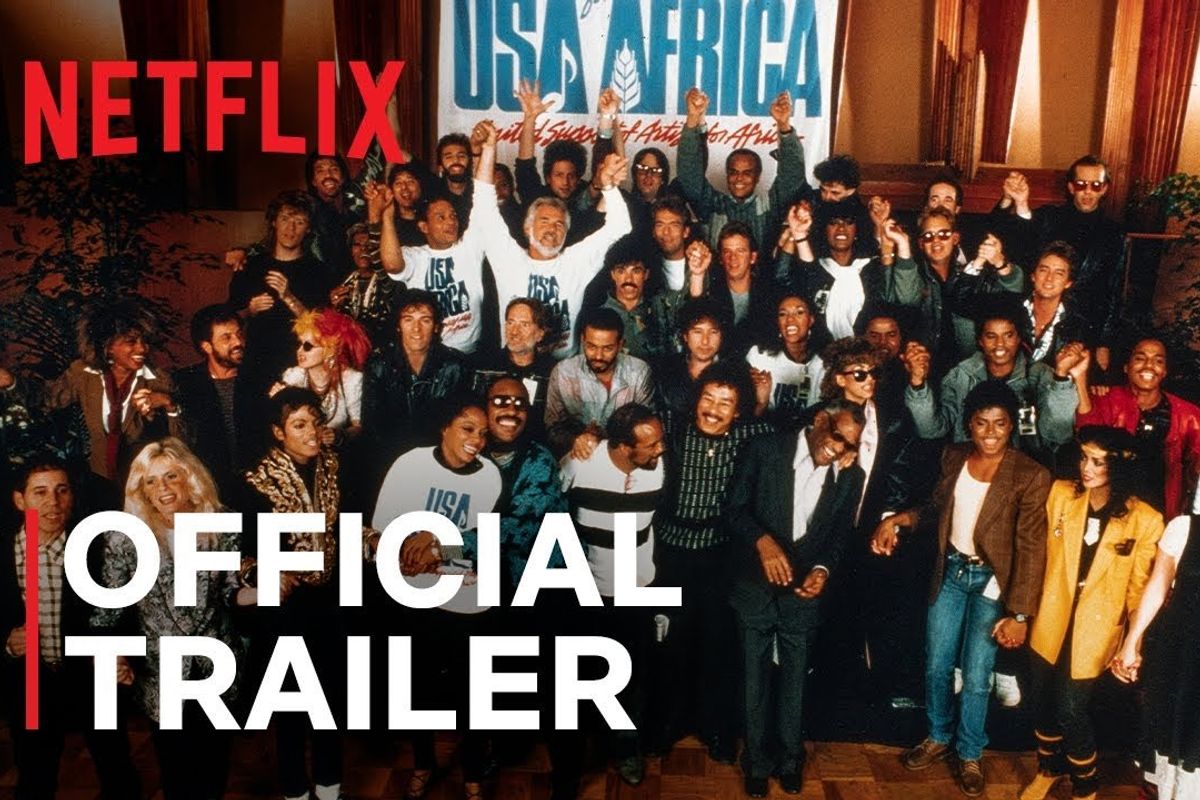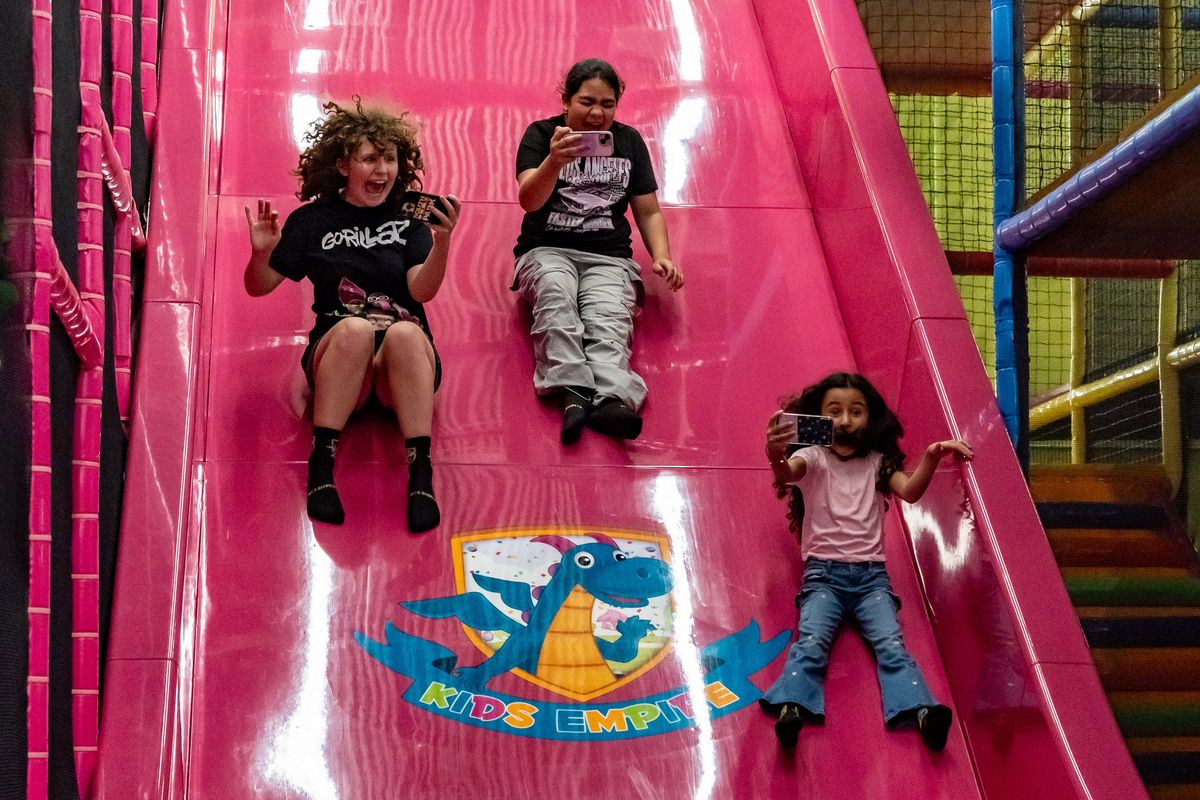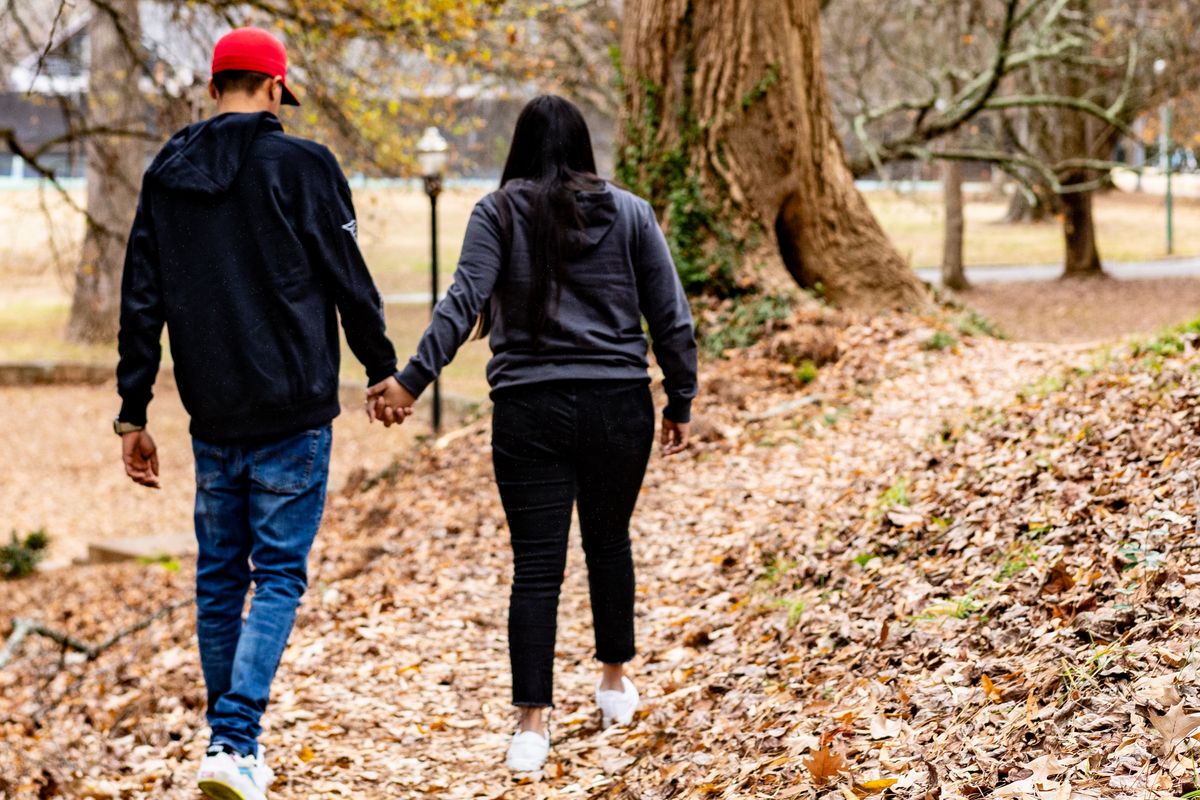'The Greatest Night in Pop' reveals the making of 'We Are the World,' and it is riveting
From Stevie Wonder reminding Bob Dylan how to be Bob Dylan, to Diana Ross wanting Daryl Hall's autograph, to Waylon Jennings walking out in protest, it's a must-watch.

Dozens of top artists of the 80s joined forces to raise money for famine-stricken Africa in 1985.
Every Gen Xer and baby boomer remembers how big of a deal "We Are the World" was when it came out in 1985. The USA for Africa project brought together dozens of the era's most famous musicians to record the song, which raised millions of dollars in aid for famine-stricken Ethiopia and became an anthem for the global fight against hunger. (A painfully cheesy anthem by modern standards, but this was the 80s, after all. Cheese was the order of the day.)
The music video was filmed during the studio recording of the song, showing superstars like Michael Jackson, Bruce Springsteen, Cindy Lauper, Tina Turner, Stevie Wonder, Kenny Rogers, Kenny Loggins and more. And up until now, that felt like the story—these musicians all got together to record the song, they did, it was epic, the end.
But there is soooo much more to the story than that, as showcased in the Netflix documentary, "The Greatest Night in Pop." And it is absolutely, 100% worth a watch.
Lionel Richie serves as the main storyteller in the documentary, which is fitting since he was one of the main orchestrators of the project. He and Michael Jackson wrote the song—which is an entire story in and of itself. They thought they had plenty of time, and then they learned they needed to have it written and ready to record by the following week. There was a fight at Michael Jackson's house between his dog and his talking bird during the songwriting process. At another one point, MJ's enormous pet snake got lost and scared the bejeezus out of Lionel Richie by knocking over some albums and hissing behind him.
Richie talks glowingly about Jackson's incredible talents, but Richie deserves a shout out as well for his energy and endurance. "We Are the World" was recorded overnight and into the morning after the American Music Awards ended. That night, Richie served as the host of the AMAs, performed two songs there, won multiple awards during the ceremony, and then hightailed it to A&M Studios to record "We Are the World," which he co-wrote. And on top of all of that, he served as a handler of sorts for the multiple personalities who were there in that room, keeping everyone on task and focused without being heavy-handed about it. It's genuinely impressive to witness.
But seeing how these big musicians acted when they were all in a room together is the most delightful part of the documentary. Quincy Jones had put up a handwritten sign telling everyone to "Leave your ego at the door." Easier said than done in a group like that, but at the same time, these huge stars were starstruck themselves. We see it over and over again, these household names giddy over meeting their idols, feeling shy around one another, being nervous about their solos and other evidences of oh-so-obvious humanness.
Huey Lewis describes how his legs shook when it came time to sing his solo part—which was originally supposed to go to Prince, who never showed. Diana Ross went up to Daryl Hall and asked for his autograph, telling him she was his biggest fan, prompting the whole group to start signing one another's music. They all spontaneously sang "Day-O" to Harry Belafonte to celebrate him, as it was his advocacy that had initially prompted the project. Seeing how much these artists admired one another is really sweet.
But there were some snags along the way, too, which are equally interesting to watch play out. At one point, Stevie Wonder tried to insert some lyrics in Swahili into the song, which prompted country singer Waylon Jennings to bail on the whole project, reportedly saying, "No good old boy sings in Swahili.” (The idea was nixed anyway, as Swahili isn't spoken in Ethiopia and, as Bob Geldof pointed out, they weren't singing to the people they were helping, but rather to the people who had the means to give.)
Bob Dylan appears to be completely out of it through much of the night—a fact that has led to plenty of stoner jokes over the years. But by the end, we see that Dylan was just completely out of his element in a room full of genuine singers, and it took Stevie Wonder literally mimicking him to get Dylan to feeling comfortable performing his part in the song.
The whole documentary is worth a watch to witness the creative chaos of the process, the drama that inevitably comes up when big personalities get together and the bonds that were built through this heartfelt project. Leveraging fame and utilizing art to save lives was a beautiful idea, and seeing it all come together is really something.
"The Greatest Night in Pop" can be seen on Netflix. Highly recommend.
- Listen to a Grammy Award winner's song about world hunger. It's simply stunning. ›
- These 15 projects show how we could feed the world sooner rather than later. ›
- Rehearsal footage from 'We Are the World' shows how incredibly talented everyone was in the '80s ›
- Stevie Wonder mesmerizes 1972 audience with the first talkbox performance - Upworthy ›


 A handwritten note with the words "good job!" on it
A handwritten note with the words "good job!" on it A man smiling
A man smiling A dad with his kid on his shoulders
A dad with his kid on his shoulders Sandra’s granddaughter, E’s daughter, and another friend at an indoor park (July 2025)
Sandra’s granddaughter, E’s daughter, and another friend at an indoor park (July 2025) One of the ladies Sandra sponsored from Venezuela and her partner during Sandra’s first visit to meet her (December 2023)
One of the ladies Sandra sponsored from Venezuela and her partner during Sandra’s first visit to meet her (December 2023) Kids playing outside, nary a care in the world.
Kids playing outside, nary a care in the world.  Be honest, how cringey was your AOL screen name?
Be honest, how cringey was your AOL screen name?  Im Old Tv Shows GIF by PBS SoCal
Im Old Tv Shows GIF by PBS SoCal  Kelsey Grammer as Dr. Frasier Crane in 1996By US Treasury Dept. Public Domain
Kelsey Grammer as Dr. Frasier Crane in 1996By US Treasury Dept. Public Domain Misunderstandings happen when people start changing what punctuation means.Screenshot via Annie Reneau
Misunderstandings happen when people start changing what punctuation means.Screenshot via Annie Reneau  Unless you literally say, "period," a period doesn't mean anything but the end of a thought.
Unless you literally say, "period," a period doesn't mean anything but the end of a thought.  This Gen Xer will not be swayed.
This Gen Xer will not be swayed.  Periods are just periods.
Periods are just periods. Team collaboration and brainstorming session at the office.
Team collaboration and brainstorming session at the office. Man focused on his phone outdoors in casual attire.
Man focused on his phone outdoors in casual attire. Team debate heats up, leaving one member stressed.
Team debate heats up, leaving one member stressed. Office debate: exchanging ideas with passion.
Office debate: exchanging ideas with passion.